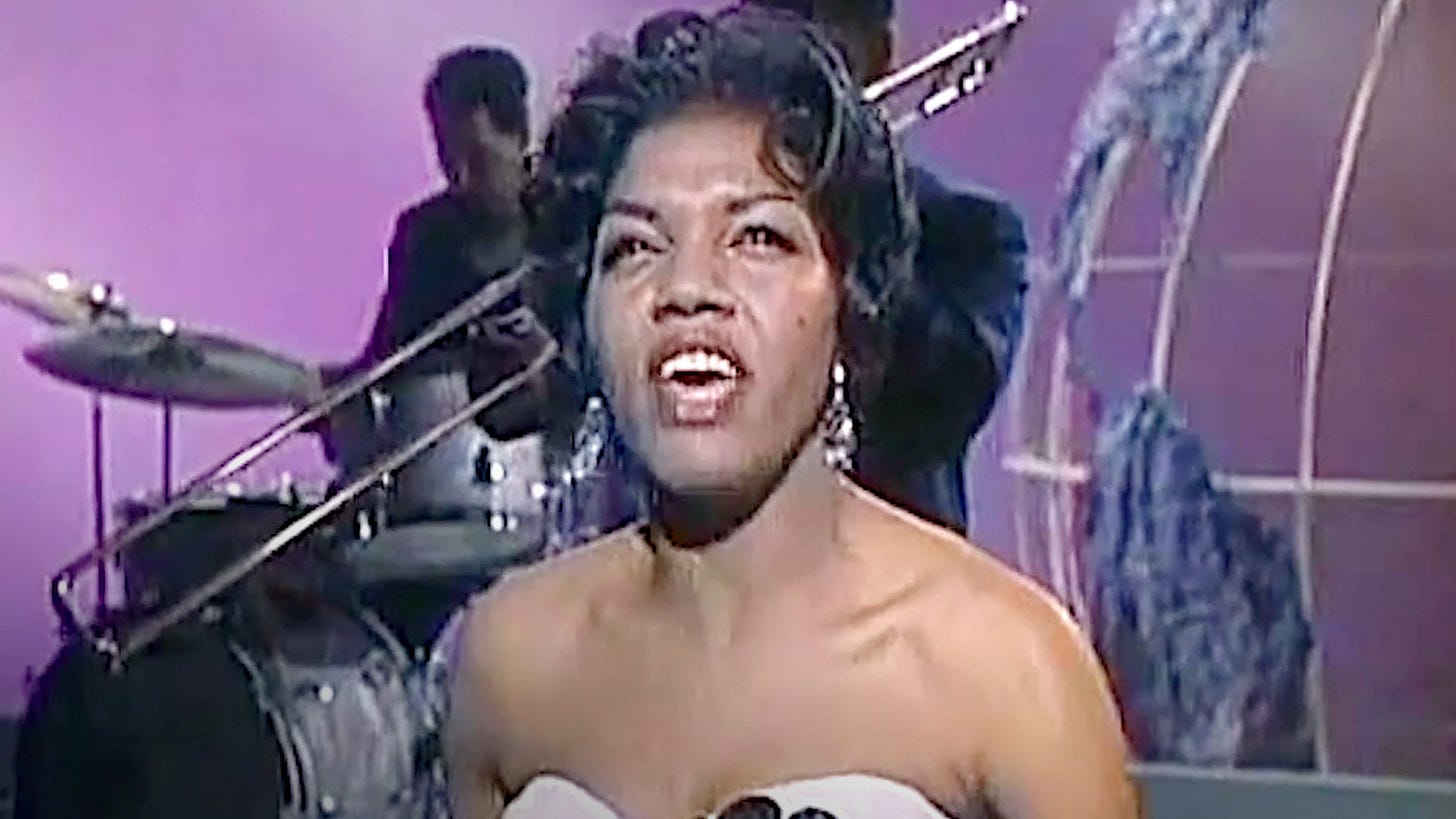When Houston Had the Blues
Indianapolis' resident blues expert opines on this new documentary about one Texas city that was just as big a musical melting pot as New Orleans and packs as big a blues music punch as Memphis.
There's a new documentary about the history of a city's music history that will hopefully getting a new light and appreciation from music fans. But first a request...
Film studios, please stop making mediocre film biopics about the artists in my record collection.
"Bohemian Rhapsody," "Rocketman," "Cadillac Records," "Respect," "Stardust," "One Love," etc. I know there are biopics of Bruce Springsteen, Bob Dylan and a four-part film series on each of The Beatles are coming soon. For the record, "Rocketman" is my favorite of the titles mentioned only because it's more of a Vegas stage show than a standard biography film.
I'm still stunned that a fine comedy like 2007's "Walk Hard" eviscerated the music biopic film. It doesn't help matters that "Walk Hard" did not do well at the box office and has since then become a cult favorite. One wonders what would have happened to the musical biopic if "Walk Hard" was a hit. When a filmmaker tries to break the mold of the music biopic (like the 2007 Bob Dylan film "I'm Not There," directed by Todd Haynes), it only get a fraction of the audience as the previously mentioned titles.
I guess for a lot of people, the music biopic is cinematic comfort food and for those with not fans of documentaries (which I call a Them Problem), this could be Musician Subject 101. My cinematic comfort food are music documentaries. Ever since "Standing In the Shadows of Motown," there have been a buffet of music documentaries such as "20 Feet From Stardom" (back-up singers), "The Wrecking Crew" (L.A. studio musicians) and "Muscle Shoals" (famous recording studio). HBO/MAX recently released a documentary series about the history of Stax Records. As a music fan and host of a blues radio show, the more of these, the better.
To go back to my previous rant, place the Amy Winehouse documentary "Amy" and the biopic "Back to Black" side by side. The defense rests.
The latest cinematic buffet dish is "When Houston Had the Blues," a documentary about the history of the Houston, Texas music scene. A scene that was overshadowed by New Orleans and Memphis. Director Alan Swyer ("It's More Expensive to Do Nothing," "Spiritual Revolution") shows and tells, Houston was just as big a musical melting pot as New Orleans and packs as big a blues music punch as Memphis.
The films covers the history of the city, the good and the bad having a racially divided city. The city's Third Ward was the hubs of the city's African-American community while the Fifth Ward was known as "French Town" for the flux of Cajuns and Creoles (many coming over from Louisiana). Houston had a music scene of blues, jazz, rock and roll, R&B, soul, salsa, Tejano, Cajun, zydeco and country music. Some musicians (like studio sessions players) could play all these musical genres at any time. According to the film, Ray Charles, B.B. King and James Brown had to have Texas musicians in their bands.
"Houston" has what music fans love: Plenty of talking heads ranging from some of the current performers (Diunna Greenleaf, Trudy Lynn, C.J. Chenier and ZZ Top's Billy Gibbons) mixed in with archival performance footage from legends like Albert Collins, Big Mama Thornton (the first artist to record "Hound Dog") and Clifton Chenier (The original King of Zydeco and C.J.'s father). As a music lover, this film helps shine a light on lesser-known artists like Juke Boy Bonner and Marie Adams. There's talk of the Houston-based Peacock record label (who released "Hound Dog") and its eventual purchase of the Memphis label Duke Records, whose big artist was Bobby Bland.
It's also happy to see coverage of Houston's two musical legacies: female singers (Thornton, Greenleaf, Adams, Lynn, Jewel Brown, Katie Webster and Dr. Mabel John) and saxophonists like Arnett Cobb, Illinois Jacquet and Grady Gaines who is best known for his time Little Richard. There's a famous photo of Gaines blowing sax while standing on Little Richard's piano in mid-performance.
The film also covers the city's history of racial division within the city's wards and the later effects of gentrification. Some of the hotbed musicians of the 1950s and 60s had to eventually take day jobs when gigs dried up. Singer Trudy Lynn is currently 77 years-old and said in the documentary she's not going anywhere when it comes to delivering the blues. No TV talent contests here. Just hitting a nightclub stage or a bar corner, doing two maybe three sets a night. After night. After night.
It's obvious that "When Houston Had the Blues" was originally released in 2023 to make the film festival circuit. After the closing credits, there are several film testimonials about inducting Big Mama Thornton into the Rock and Roll Hall of Fame. The 2024 hall of fame inductees in the Musical Influence Award category are Alexis Corner, John Mayall and...Big Mama Thornton.
Clarence "Gatemouth" Brown did not like to be called a blues artist. He called what he played "American Music, Texas Style." "When Houston Had the Blues" is a cinematic version of a music box set that I hope will make more people interested in the city's rich music history. The film will be available on VOD starting Sept. 24.
Matthew Socey is host/producer of the Film Soceyology podcast and The Blues House Party for WFYI 90.1 FM and wfyi.org.





The Houston sound isn't appreciated as much as it could be. The Duke/Peacock organization by itself was massively influential.